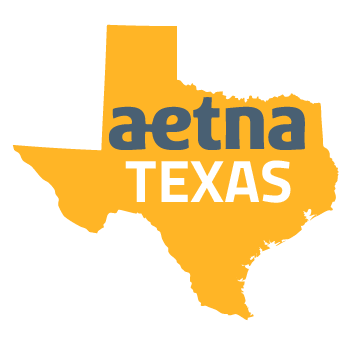 Managing personal health and well-being starts with understanding your insurance policy and the options available to address specific needs. Substance abuse or a mental health disorder complicate personal well-being and require appropriate treatment solutions based on the situation and the coverage available through a policy. In Texas, individuals and families have policies available through Aetna to help with rehab treatments and addiction recovery.
Managing personal health and well-being starts with understanding your insurance policy and the options available to address specific needs. Substance abuse or a mental health disorder complicate personal well-being and require appropriate treatment solutions based on the situation and the coverage available through a policy. In Texas, individuals and families have policies available through Aetna to help with rehab treatments and addiction recovery.
Coverage Available from Aetna
Aetna offers individual and family policies in Texas, as well as policies through an employer. A personal policy allows individuals to select a program that meets their specific needs and financial situation.
Coverage depends on the specific policy, but most plans from Aetna offer some solutions for mental health disorders and substance use disorders. In most cases, the policy offers similar coverage for mental health and substance abuse, so evaluate the limitations carefully before selecting a policy. Generally, the coverage applies after paying the stated deductible, which ranges from around $1,500 to roughly $6,000 per year. Copayment rates vary based on the services, but usually apply to specific amounts or percentages of the total treatment costs. For example, a copayment rate of 70 percent means the individual pays 30 percent of the total costs. Outpatient treatment usually requires a copayment of a stated amount, such as $10 to $15 per visit.
Pay attention to the limitations in the policy when selecting a plan. Some plans, particularly bronze policies, do not cover out-of-network treatments. It may offer excellent coverage for in-network facilities, so evaluate the program and check the insurance policy before starting treatment.
Variations in Plans
Although the policies offer coverage for substance abuse, Aetna offers several options to Texas residents. As a result, the variation between policies impacts the plan that suits most individuals.
In Texas, individuals have bronze, silver, and gold policies. In most cases, bronze policies offer basic coverage and help with most costs. It usually has the lower monthly expense, but the highest out-of-pocket cost. Silver policies are usually standard plans with reasonable coverage and reasonable rates. A gold policy usually covers a larger percentage of treatment costs and out-of-pocket expenses; however, it also has the highest monthly rates.
Focus on any limitations in the policies, since the details vary between plans. Some policies exclude specific treatments or set limits on the facilities offering coverage. Select an in-network treatment program so coverage applies to your situation.
Identifying a Treatment Facility
After ensuring that the policy covers the cost of treatment in a specific type of program, consider the options available for your situation. Since every person has different needs and goals, the best facility depends on your specific situation. Compare different programs before finalizing your treatment plans to avoid complications.
The first consideration is the type of treatment available in the facility. Traditional treatment refers to counseling services, group therapy and similar programs with a long history in addiction and mental health treatments. Most facilities offer traditional treatment strategies as well as other options to address substance abuse.
Holistic treatment facilities refer to programs with a whole-person approach to healing. It uses traditional treatments with evidence-based solutions and alternative medicines to address the underlying cause of the problem. It also recognizes that some individuals require medical treatments or solutions for mental health disorders and takes time to address the specific situation.
Evidence-based treatments use scientific studies to identify the right treatment plan for personal goals. The facility uses tools like cognitive-behavioral therapy or psychological treatments to help change the behaviors.
Compare inpatient and outpatient programs to ensure you get the right treatment plan. Inpatient, or residential, treatments mean an individual enters the facility for a specific amount of time, like one month. He or she focuses solely on treatment in a safe and healthy environment. An outpatient program does not require leaving home and focuses on treating the mental health disorder or substance abuse while still managing work and other personal obligations.
Selecting a Program
 The best facility for your goals and situation depends on the situation. Aetna provides coverage for rehab programs in Texas and allows individuals to focus on their specific needs. Contact us at DrugRehab.org to compare and select the treatment program.
The best facility for your goals and situation depends on the situation. Aetna provides coverage for rehab programs in Texas and allows individuals to focus on their specific needs. Contact us at DrugRehab.org to compare and select the treatment program.
